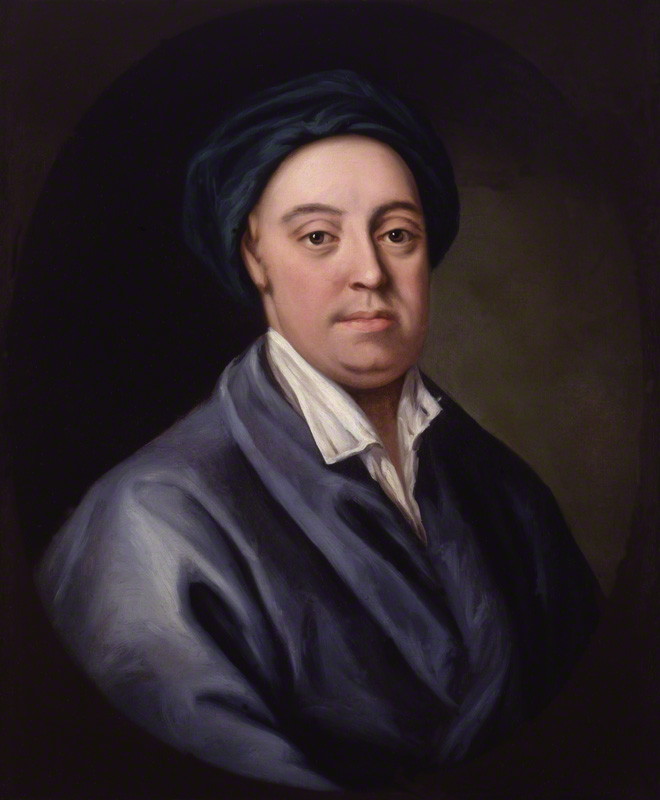Canto I, Stanza 17.
The Castle of Indolence (1748)
Works
The Seasons
James Thomson (poet)The Castle of Indolence
James Thomson (poet)Famous James Thomson (poet) Quotes
Source: The Seasons (1726-1730), Autumn (1730), l. 1-3.
Canto I, Stanza 6.
The Castle of Indolence (1748)
“But yonder comes the powerful king of day,
Rejoicing in the east.”
Source: The Seasons (1726-1730), Summer (1727), l. 81.
To Fortune; song reported in Bartlett's Familiar Quotations, 10th ed. (1919).
James Thomson (poet) Quotes about nature
Coriolanus, Act iii, scene 3; reported in Bartlett's Familiar Quotations, 10th ed. (1919).
Source: The Seasons (1726-1730), Spring (1728), l. 71-73.
Canto I, Stanza 68. (Last line said to be "writ by a friend of the author.").
The Castle of Indolence (1748)
“But who can paint
Like Nature? Can imagination boast,
Amid its gay creation, hues like hers?”
Source: The Seasons (1726-1730), Spring (1728), l. 465.
Canto II, Stanza 3.
The Castle of Indolence (1748)
James Thomson (poet): Trending quotes
“A little, round, fat, oily man of God.”
Canto I, Stanza 69.
The Castle of Indolence (1748)
“Who stemm'd the torrent of a downward age.”
Source: The Seasons (1726-1730), Summer (1727), l. 1515.
Source: The Seasons (1726-1730), Summer (1727), l. 1346.
James Thomson (poet) Quotes
“They who are pleased themselves must always please.”
Canto I, Stanza 15.
The Castle of Indolence (1748)
“From seeming evil still educing good.”
Source: Hymn (1730), line 114.
“Come, gentle Spring! ethereal mildness, come.”
Source: The Seasons (1726-1730), Spring (1728), l. 1.
“For still the world prevail'd, and its dread laugh,
Which scarce the firm philosopher can scorn.”
Source: The Seasons (1726-1730), Autumn (1730), l. 233.
Source: The Seasons (1726-1730), Spring (1728), l. 1158-1161.
“The kiss, snatch'd hasty from the sidelong maid.”
Source: The Seasons (1726-1730), Winter (1726), l. 625.
“Poor is the triumph o’er the timid hare!
Scared from the corn, and now to some lone seat
Retired”
Source: The Seasons (1726-1730), Autumn (1730), l. 71-73.
“Amid the roses fierce Repentance rears
Her snaky crest.”
Source: The Seasons (1726-1730), Spring (1728), l. 996.
Source: The Seasons (1726-1730), Summer (1727), l. 1752.
“See, Winter comes to rule the varied year,
Sullen and sad.”
Source: The Seasons (1726-1730), Winter (1726), l. 1.
“A lucky chance, that oft decides the fate
Of mighty monarchs.”
Source: The Seasons (1726-1730), Summer (1727), l. 1285.
“The meek-ey'd Morn appears, mother of dews.”
Source: The Seasons (1726-1730), Summer (1727), l. 47.
“Falsely luxurious, will not man awake?”
Source: The Seasons (1726-1730), Summer (1727), l. 67.
“Welcome, kindred glooms!
Congenial horrors, hail!”
Source: The Seasons (1726-1730), Winter (1726), l. 5-6.
“He ceased; but still their trembling ears retained
The deep vibrations of his witching song.”
Canto I, Stanza 20.
The Castle of Indolence (1748)
“Base Envy withers at another’s joy,
And hates that excellence it cannot reach.”
Source: The Seasons (1726-1730), Spring (1728), l. 283.
Canto I, Stanza 26.
The Castle of Indolence (1748)
Canto II, Stanza 55.
The Castle of Indolence (1748)
“Delightful task! to rear the tender thought,
To teach the young idea how to shoot.”
Source: The Seasons (1726-1730), Spring (1728), l. 1149-1150.
“O Sophonisba! Sophonisba, O!”
Sophonisba, Act iii, scene 2; reported in Bartlett's Familiar Quotations, 10th ed. (1919). The line was altered after the second edition to "O Sophonisba! I am wholly thine".
“Cruel as death, and hungry as the grave.”
Source: The Seasons (1726-1730), Winter (1726), l. 393.
“Ships dim-discovered dropping from the clouds.”
Source: The Seasons (1726-1730), Summer (1727), l. 946.
Canto I, Stanza 72.
The Castle of Indolence (1748)
“But what most showed the vanity of life
Was to behold the nations all on fire.”
Canto I, Stanza 55.
The Castle of Indolence (1748)
Source: Hymn (1730), line 1.
Source: The Seasons (1726-1730), Autumn (1730), l. 871-874.
“There studious let me sit,
And hold high converse with the mighty dead.”
Source: The Seasons (1726-1730), Winter (1726), l. 431-432.
“For many a day, and many a dreadful night,
Incessant lab'ring round the stormy cape.”
Source: The Seasons (1726-1730), Summer (1727), l. 1002.
“He saw her charming, but he saw not half
The charms her downcast modesty conceal'd.”
Source: The Seasons (1726-1730), Autumn (1730), l. 229.
“For loveliness
Needs not the foreign aid of ornament,
But is when unadorned adorned the most.”
Source: The Seasons (1726-1730), Autumn (1730), l. 208-210.
“Come then, expressive silence, muse His praise.”
Source: Hymn (1730), line 118.
